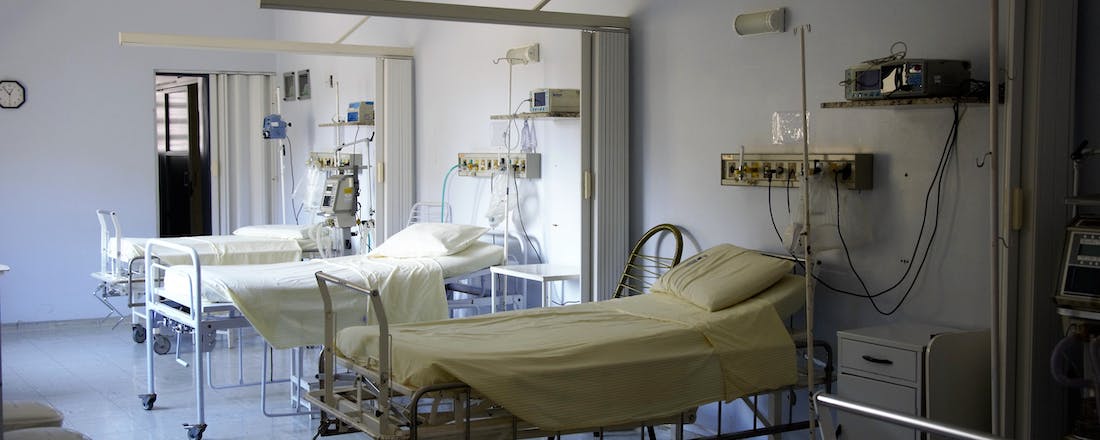Embarking on a journey to a new country is an exhilarating experience, but for expatriates, it is crucial to familiarise yourself with the local hospital system. Dubai is world-renowned for its diverse expat community and offers a healthcare infrastructure that is not only comprehensive but also boasts a great deal of diversity and choice. This article will explore the various facets of Dubai’s hospital system, addressing key elements such as accessibility, costs, emergency services, and the role of health insurance.
Hospital system overview

Dubai’s commitment to providing quality healthcare to its residents is reflected in its dense and diverse hospital offering. The city houses an array of public and private healthcare facilities, ranging from large hospitals to specialised clinics. Nearly all hospital systems will offer both acute care and outpatient services within the same flagship facility.
These hospitals are staffed by globally trained healthcare professionals, ensuring that residents, including expatriates, receive medical care that is not only of a high standard, but that also reflects medical practice guidelines of different countries. Expatriates in Dubai enjoy a great deal of choice when selecting the “flavour” of care that best aligns with the standards they may be used to in their home countries.
Access to healthcare services
A significant advantage for expatriates in Dubai is the accessibility of healthcare services. Relative to other nations with developed healthcare systems, the city is densely populated with healthcare facilities and hospitals from which to select. Residents and visitors typically enjoy near-immediate access to a wide range of health services, with little to no waiting periods to secure an appointment. An outpatient appointment can often be scheduled on the same day.
Public (i.e., government) hospitals such as Rashid Hospital and Dubai Hospital are known for their top-tier trauma, stroke and intensive care units, which are notably more established than most private hospitals. In some situations, public hospitals may offer more cost-effective healthcare options, which could provide a safety net for those on a tighter budget; however, cost containment may not always be possible for medically complex cases. On the other end of the spectrum, private hospitals like Mediclinic and American Hospital cater to individuals seeking specialised care and premium services with competitive pricing.
The Dubai Healthcare City (DHCC), a healthcare-free economic zone, is a hub for medical expertise, housing numerous clinics and hospitals and offering a wide spectrum of specialised healthcare services. Throughout the rest of Dubai, residents can select from numerous standalone, privately operated multidisciplinary clinics (also known as “polyclinics”) that offer a myriad of medical services to patients of all ages. Some private polyclinics, such as Circle Care Clinic in the Jumeirah and City Walk districts, have exceptional reputations and are known for providing top-tier patient-centric care.
Emergency services

Dubai places a strong emphasis on providing efficient and prompt emergency medical services. The Dubai Corporation for Ambulance Service, a government-sponsored ambulance service, operates 24/7, ensuring a rapid response to emergencies across the city. In the event of a life-threatening emergency, the ambulance service is legally required to transport you to the closest appropriate hospital setting.
Fortunately, major hospitals in Dubai are equipped with state-of-the-art emergency departments and stand ready to handle a wide range of medical emergencies. Expats can confidently rely on the city’s well-organised emergency services for immediate and effective healthcare assistance.
Hospital admissions
Hospital admission in Dubai is a well-organised process designed to ensure prompt and efficient healthcare services for residents, including expats. For unplanned admissions, the process typically begins with an initial assessment in the emergency department or outpatient clinic. For planned admissions, such as elective surgeries or scheduled procedures, patients often receive pre-admission instructions to facilitate a smooth entry into the hospital system. Once admitted, patients can expect to receive a personalised care plan and meet a dedicated healthcare team that will work collaboratively to address their medical needs.
Most of Dubai’s hospitals prioritise patient comfort, offering modern facilities and amenities to enhance the overall hospital experience. The emphasis on patient-centric care ensures that hospital admissions in Dubai are not only clinically effective but also focused on providing a supportive and comfortable environment for individuals seeking medical attention.
Health insurance
In Dubai, health insurance is not merely advisable but mandatory for all residents, including expats. The government mandates health coverage to ensure that everyone has access to essential healthcare services without facing significant financial burdens. All health insurance packages offered in Dubai include some degree of both inpatient and outpatient coverage, as well as life-threatening emergency coverage. Additionally, all employers in Dubai are required to provide health insurance coverage to their employees; however, the degree of coverage can vary significantly depending on the employer.
Expats are encouraged to explore different insurance plans, considering coverage options, network facilities, and whether their employer offers a sponsored plan. When selecting supplemental insurance plans, residents may recognise plans from internationally known insurers like Cigna; however, there are also many high-quality local insurers, such as Sukoon or Salama, who may offer more competitive rates or advantages.
It is important to note that the Emirates of Abu Dhabi and Al Ain also have similar (but not identical) health insurance mandates for health insurance coverage, and all other emirates have no such mandate for health insurance. This may be relevant for individuals who may reside in one Emirate but are offered employment in another.
Navigating the complexity of health insurance offerings in Dubai may seem daunting to a new resident – it is advisable to recruit the assistance of a health insurance broker when purchasing primary or supplemental to secure the most competitive rates.
Costs of medical services

As discussed above, health insurance is a requirement; however, the degree of out-of-pocket expenses or co-payments will vary from plan to plan. Public healthcare services are generally more affordable, making them accessible to a broader range of residents. Private healthcare may come with a higher price tag, especially for specialised treatments or consultations. Fortunately, healthcare costs are generally very transparent to patients. Expats are encouraged to proactively inquire about prices, compare prices across different facilities, and explore health packages offered by various providers to ensure financial preparedness.
In an inpatient hospital setting, costs are still quite transparent, and patients and families are still invited to ask about costs during their inpatient stay if appropriate. In an emergency situation, if a patient is admitted to a hospital outside their coverage network and they wish to contain cost, they can request transfer to an in-network hospital when medically appropriate. All hospital systems in Dubai are required to participate in a health information exchange (NABIDH), which ensures that your health data can be exchanged across all hospitals and clinics if your care team or your needs change.
Understanding the hospital system in Dubai is an important aspect of an expatriate’s life in this dynamic city. Understanding the myriad healthcare options available, whether in the public or private sector, is crucial for making informed decisions about one’s well-being. By staying well-informed and proactive about healthcare options, expatriates can confidently embrace their new life in Dubai, secure in the knowledge that their health is in good hands.
Supplied by Ramy Khalil MD, Consultant Internal Medicine, Circle Care Clinic in Dubai.


